- Home
- Helen Dunmore
Girl, Balancing & Other Stories Page 2
Girl, Balancing & Other Stories Read online
Page 2
‘Bloody hell. You might as well put me in my coffin straight away.’
When Nina’s sister was born, her father had had to telephone one of his own sisters, because her mother had never looked after a baby in her life. He said, ‘You’ll have to come, Sheila, because Cathy has no idea which end of a baby is which.’ Her father knew which end was which, because there’d been eleven babies younger than him, but he had to go to work.
‘Are you going to put her back?’ asked her mother. Nothing moved except for a stir of flame in the fire.
‘In a minute,’ said her father. ‘When the cloth’s gone cold.’
THE TOWEL
THAT FIRST NIGHT, Nina dried herself on a piece of striped Madras cotton. She’d packed it because she had the idea of spreading it across the armchair. But although the armchair was dark with use it looked worse with the fabric lying limply across it.
The bathroom was down a half-flight of stairs. There was a notice on the door. ‘Upon vacating the bathroom, please leave the door ajar.’ When Nina went downstairs, the bathroom door was firmly shut. She went back to her room, and waited behind the door for sounds. She would give it twenty minutes. That was a fair time for someone to have a bath, even if they were old and had to haul themselves in and out, groaning and sloshing water over the enamel lip.
Mrs Bersted had shown Nina how to use the geyser, but only once. Nina was not quick with things like that. The pilot was always alight, she remembered that, and there was a whump as the flame shot up and filled the geyser window.
She knew, even from upstairs with her own door shut, that the bathroom door hadn’t opened. She would go down again with her sponge bag and the Madras fabric. The turn of the stairs was dark and a heavy smell of food hung in it. There was a smell of Jeyes Fluid too. She went right up to the bathroom door, put her ear against it, and listened. Nothing. Perhaps someone had drowned in the bath. She tapped once, very lightly, on the oily dark green paint. Nothing. It ought to be like a public toilet, with a slot where you pushed in the penny. You’d know where you were then.
Far below in the house, a door opened. Nina took fright. If someone came up and saw her standing here—
She rapped smartly on the door, and when no one answered she turned the handle and pushed it open. The bathroom was quite empty. She put her stuff on the chair, and quickly bolted the door.
The bath was bone-clean.
‘Turn the knob of the geyser until the flame ignites, then adjust until desired water temperature is achieved,’ said the notice on the wall which Nina had failed to notice earlier, in her panic of attention to what Mrs Bersted was saying.
She took off her clothes and folded them carefully on the chair, as if someone were watching her. Her legs looked very white and naked. Gingerly, she took hold of the knob, and turned it as she thought Mrs Bersted had done in her demonstration. Nothing happened. She turned the knob a little farther. There was a sudden, frightening hiss of gas, but no flame. Only the puny pilot light, crouched down in the heart of the enamel geyser. She fumbled in her rush to twist the knob back. There was sweat prickling in her armpits and her lips moved as if she was explaining herself to someone.
She would have a cold bath. That would be much better than trying the geyser again. Nina ran a few inches of water and swished it about to make it warmer before she climbed in. She could not sit down; it was much too cold. She knelt, shivering, sweeping a little water over her skin with her flannel. The soap slipped out of her hands. She wanted to mew like a cat from the cold but there might be someone else on the landing now, waiting silently. She stood up and rubbed the Madras cotton over herself. It seemed not to dry her but to spread the moisture more evenly over her body. Her nipples stood out, hard and dark. The bath mat was slimy under her feet but she had her flip-flops under the chair and soon she was wriggling the rubber thong back between her toes.
The bath emptied itself with a noise like an old person clearing catarrh in the morning. Nina swilled the tub with cold water, and then she noticed a tin of Ajax and a bath-scourer on the windowsill, beneath another notice, which read: ‘Please leave this bathroom in the state you would wish to find it.’ She shook the tin cautiously over the enamel. Nothing came out, so she shook again, harder. The cardboard lid flew off and a cascade of dirty white powder dropped on to the bottom of the bath. A hot wave went over her skin. She began to shovel the powder back into the tin, using her hand and the lid. It gritted her finger-ends but she captured most of it, forced the lid down again and replaced the tin on the shelf so that it faced the same way as before. The bottom of the bath was covered with dull grey streaks. She let loose another flood of cold water and was still scouring at the enamel when there was a bang on the door.
‘Anyone in there?’ called a man’s voice.
‘Just a minute,’ she called, scuffling into her pants and bra. Her jeans were splashed all over with water and some of the white powder had fallen on her T-shirt. She looked around quickly. The bathroom had lost its pure dry cleanliness and she didn’t know how to put it back. The doorknob rattled. Nina pulled back the bolt and opened the door, keeping her eyes down on her heap of wet Madras cotton and sopping flannel.
‘You’ve forgotten your sponge bag,’ said the man as he barged into the bathroom. He held it out to her backwards, as if it were something contaminating. ‘Thank you,’ she said, not looking up at him. She smelled his sweat. He’s just come in from work, she thought. He had his right to the bathroom, ahead of any schoolgirl, and he knew it. She backed away into the stairwell, clutching her possessions, and waited until the bathroom door slammed before she went upstairs. She didn’t want him to know where her room was.
But he would know anyway. The boarding house wasn’t that big. She was right at the top. Opposite, there was a blank door.
‘Oh no, that room’s not let,’ Mrs Bersted had told her with a grim smile. ‘It’s not fit for habitation.’
Nina spread the Madras cotton out over the back of the wooden chair she was to sit on when she ate. There was a table-flap which came down from the wall with a sudden bang; but she had mastered it. She had spent 14/6 on food: tonight she would have baked beans, with some cheese grated on top. There was a food safe outside the window for ‘perishable items’. You had to pull the sash right up, then open the little wire cage door and slip in your bottle of milk or a piece of cheese. Nina’s room faced north, so things would keep nice and fresh.
Nina had two saucepans: her mother’s old milk pan, and a new, thin, shiny aluminium pan for everything else. She stabbed the tin opener into the baked-beans tin, twisted it and, after a false start, she found the steady jagging rhythm that would take her all the way around the tin and open it.
She ate carefully, sopping her bread in the sauce. The Baby Belling didn’t have a grill, but there were two rings on top, and a small oven. Next time she would slice the bread and put it into the oven, which would be just as good as toast. She had bought three tins of beans, one of which had pork sausages hidden in it, two of tomatoes, several packets of dried soup and a Vesta chow mein. She had even remembered about washing-up liquid, and had already tried out the Ascot water heater with success. It occurred to her that if she could never get the geyser to work, she might carry pans of Ascot-heated water downstairs to take the chill off her baths. At least that way she would be able to wash her hair.
The street lights were coming on outside. They were a rough, angry orange. She closed her eyes. When she opened them, the street and its lights would have disappeared. She would hear an owl.
‘Now, are you sure you’re going to be all right, Nina?’ her mother had asked. She was already picking up her things, and the empty suitcases which she was taking back with her. Nina could not remember packing. There were gaps like that all over her memory at the moment. But she had thought ahead: in a side pocket of her case there were four packets of her father’s cigarettes. She had slid them out and into a drawer while her mother was talking to Mrs Bersted. Four moist
, yielding packets which would release the sweet breath of tobacco as soon as Nina stripped off the cellophane.
‘Now, are you sure you’re going to be all right?’
They looked at each other. Her mother’s eyes were evasive, pleading. The family was leaving again, only this time Nina wasn’t going with them. She was too old to be crammed into the back of a car with the little ones and driven a hundred miles to the next home. She had found a bedsit and would get a part-time job.
There was nothing to say. Nina turned and smoothed out fresh sheets of newspaper to reline the drawers before she put her clothes away. One day people would take out those sheets and read the paper and marvel at how long ago it all was.
Her mother’s hands were moving quickly into her purse. Nina watched through her hair as her mother took out four pound notes, put one back and placed three on the bed, for Nina to find when she was gone.
Nina chased the last baked bean on to her knife, ate it and pushed the plate away. She would have a cigarette now. She fetched the heavy Senior Service ashtray, her cigarettes and matches. The cellophane was off, and then the guardian strip of silver paper. Nina breathed in. She took out a cigarette, feeling the others loosen in the packet, and struck her match.
The first drag, that moment of calm, of absolute release. From the time she was fourteen it had never failed her. Nina drew in the smoke. But there was something wrong this time: the smoke tasted sour, the peace spilled away, her lips twisted as if she’d put something vile into her mouth instead of the virgin cigarette. She got up with the cigarette in her hand and went to the window. All she needed was some fresh air. But she still couldn’t smoke, and after a while she returned to the table.
Nina stubbed out the half-smoked cigarette. For a long time she remained quite still, watching the yellow nicotine mark in the middle of the filter as if she expected something to happen. It was quite dark outside now, and the draught was cold. In a minute she would close the window and draw the curtains. She had plenty of shillings for the gas fire: six at least. It was just that she didn’t feel like putting it on yet.
She had to buy a towel. That was the real problem. She hadn’t thought ahead. But she had money: the three pounds. If she had a towel she could wrap herself up in it.
Her gaze crept back to the window. How orange those lights were. She could feel it beginning in her shoulders. Alone now, the dark of fear was rising. She closed her eyes and listened for the owl. It was a crisp cold night and she was running down the lane, her satchel banging, late home from school. Soon she would come to the turn, out of the trees. A long race downhill, along the wall, and then she would see the house. Lights would be on in the kitchen. She would pull open the back door and shout, ‘I’m home!’
She would go out, now, this minute. There was a late market on a Wednesday night, not the proper market but a few stalls huddling over by a wall. They were kept by big, hard women who were always calling and laughing to each other even while they were selling something to you.
Nina thought of them and the darkness inside her began to retreat. She had her money. She would buy a towel.
THE WHITE HORSE
TONY WAS STANDING outside Yates’s Wine Lodge, his hands deep in his pockets. The fog was thick now. His head was wreathed in it.
‘Have you seen the others?’ he asked as Nina came up. She wasn’t sure what others he meant. With Tony, she rarely asked questions, in case they were stupid ones which would make him whistle through his teeth and then say, ‘Little Nina,’ in a way which even someone who wanted to couldn’t possibly think was affectionate.
‘They’re probably inside already,’ he went on, moving towards the entrance.
Inside, the man with the violin was playing. He wore a shabby loose-sleeved coat which he never took off. His face was morose, but when his bow whipped and skidded, the music which came off it was bright. You would imagine a quite different player if you closed your eyes.
‘He’s getting past it,’ said Tony.
‘What?’ Nina was too much astonished, and so the question jumped out of her mouth. It was Tony who’d told her that the violin man had played with Toots Thielemans once. Yates’s would be nothing without him.
‘Little Nina,’ said Tony. His eyes were scanning the upper floor. ‘There’s Chris.’
There were five or six of them at the table, but to Nina it was dozens. Maggie moved up and made room for her, and a packet of cigarettes was thrust towards her. She took one and sat back, hidden in smoke. Bodies pressed in on either side.
‘Did you move in all right?’ asked Maggie.
‘Yes.’
‘Good.’
Maggie was twenty-five. She was in love with Tony, or at least Nina thought so.
‘You want to get your own stuff up on the walls,’ said Maggie. ‘That’ll make it feel better.’
‘Posters, you mean?’
‘Yes, posters.’ Nina heard a tang of impatience in Maggie’s voice.
‘I know a guy who works in advertising,’ said Chris, leaning forward out of the noise. ‘He could get you a poster, Nina.’
‘You don’t know anyone who works in advertising,’ said Maggie, half closing her eyes.
‘He pastes the adverts on to billboards,’ said Chris.
‘They’d be a bit large for Nina’s room.’
‘They come in sections. He’s pasting up whisky ads at the minute.’
‘Whisky ads,’ repeated Nina.
‘White Horse,’ said Chris.
‘Oh!’ She thought of a white horse, as big as the side of a building, galloping across Mrs Bersted’s wall. Or even a section of a horse. Its head, perhaps, or a pair of flashing hooves.
‘I’ll ask him for you,’ Chris promised. ‘What’ve you done with Mal?’
Nina said nothing. She hadn’t heard from Mal for a week.
‘He’s gone to Leicester to score some dope,’ said Tony.
‘I shouldn’t have thought there was any necessity for that,’ said Maggie. ‘All he has to do is walk around the corner.’
‘Afghan gold,’ said Chris, and tapped the side of his nose. ‘Are you not drinking, Nina?’
‘She’s waiting for someone to buy her a drink,’ said Tony.
‘I’m not!’ said Nina eagerly. ‘I’ve got money, I’ll buy you a drink.’
‘We don’t want her going up to the bar,’ said Maggie quietly.
Nina took one of the pound notes out of her bag and pushed it across to Tony.
‘What do you want, then?’ he asked her.
She couldn’t think of a drink in the world that she wanted to put into her mouth. She stared at the walls for inspiration. There was a metal plaque with ‘Stone’s Ginger Wine’ embossed on it in curling letters.
‘I’ll have a glass of ginger wine.’
‘Don’t waste your money, it’s not even alcoholic,’ advised Chris.
Tony shrugged. ‘It’s her money,’ he said.
‘You have a drink too, Tony,’ said Nina hastily, ‘and Maggie and Chris – and everybody.’ She had forgotten the others’ names.
Tony took the order for the table, and went to the bar.
‘You don’t want to go buying drinks for everyone,’ said Maggie. ‘It’s not as if you’re earning.’
‘It’s all right,’ said Nina, but already her mind was making quick, panicky scampers. If each of them had a pint of beer, that would be ten shillings, and then her own drink too. She didn’t know how much ginger wine cost. Maggie would only have a lemonade or something like that. Perhaps it would be all right. She could get by for a week on a pound, as long as she ate as much as possible at school dinners. She would have two bottles of milk at break.
Maybe Mal would ask her to Sunday dinner at his place. She’d been there once before. His mum served up the roast and then they all took their plates through to the lounge so they could watch a film while they ate. Mal’s mum put her feet up on a leather pouffe which was seamed with deep cracks. Sometimes she made a
comment about the film, and Mal’s thin dark face eased into a smile. Nina kept very quiet, on the sofa next to Mal.
‘Here’s your ginger wine,’ said Tony, and put down the glass in front of her on the table. It was full up and had an oily wobbling surface. ‘First time I’ve ever asked for that.’
He had carried four pints to the table first, balancing them carefully, frowning when Maggie moved to help him. Then there was a small glass of tonic water for Maggie, who never drank alcohol.
Nina waited for Tony to reach into his pocket for the change, but nothing happened. She stared down at the surface of her drink. Her ears hummed. With a flourish, Tony produced a bag of crisps and dropped it in front of Nina.
‘Little Nina,’ he said.
Maggie eyed him, but said nothing. Tony smiled, as if he was waiting for something. Nina sipped from the top of her drink.
After a minute Tony said, ‘It’s Peter Stuyvesant you smoke, isn’t it, Nina?’
‘Number Six.’ She was not going to explain that she only smoked Peter Stuyvesant when she had taken them from her father.
‘Pity,’ said Tony. Like a conjuror, he produced four packets of Peter Stuyvesant and held them in front of Nina. She made no move. ‘Don’t you want your change?’
Nina’s lips hurt. Probably it was the ginger wine. She swallowed down the taste. ‘Thank you, Tony,’ she said. Maggie shot Tony a dark look.
It was two days later that she met Chris in the Black Olive. He was carrying four long rolls of heavy paper.
‘Here’s your white horse. No, don’t unroll it now.’
Nina was sitting alone. She knew Chris wouldn’t stay. He hated cafés like this, full of students. She stroked the smooth back of the paper. It was time for her to go. Last time she’d sat for more than two hours over a cup of coffee, doing her art homework in the warm, before the owner came over and asked if she was going to pay him rent for the table, seeing as she wasn’t buying anything. There were some friends of Mal’s over in the corner, but they didn’t speak to her and she didn’t speak to them.

 The Ingo Chronicles: Stormswept
The Ingo Chronicles: Stormswept The Deep
The Deep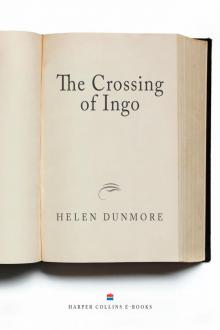 The Crossing of Ingo
The Crossing of Ingo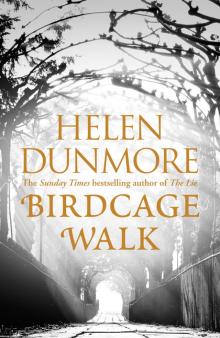 Birdcage Walk
Birdcage Walk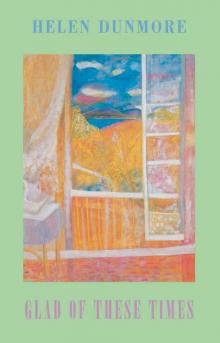 Glad of These Times
Glad of These Times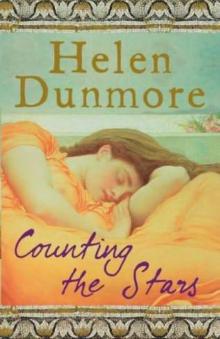 Counting the Stars
Counting the Stars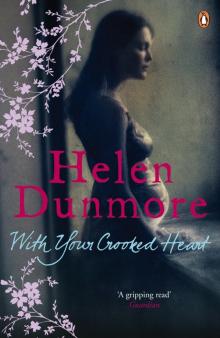 With Your Crooked Heart
With Your Crooked Heart Burning Bright
Burning Bright House of Orphans
House of Orphans Mourning Ruby
Mourning Ruby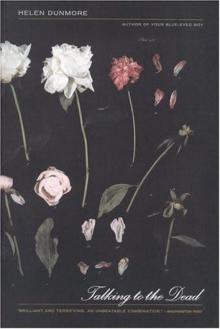 Talking to the Dead
Talking to the Dead Exposure
Exposure Ingo
Ingo The Malarkey
The Malarkey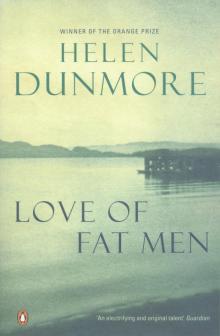 Love of Fat Men
Love of Fat Men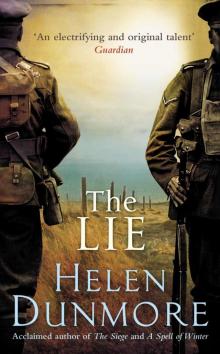 The Lie
The Lie The Siege
The Siege Inside the Wave
Inside the Wave Counting Backwards
Counting Backwards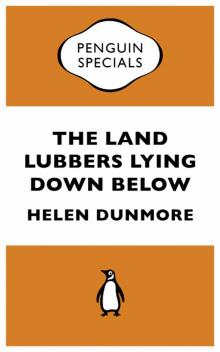 The Land Lubbers Lying Down Below (Penguin Specials)
The Land Lubbers Lying Down Below (Penguin Specials)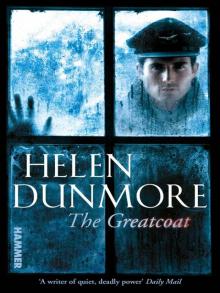 The Greatcoat
The Greatcoat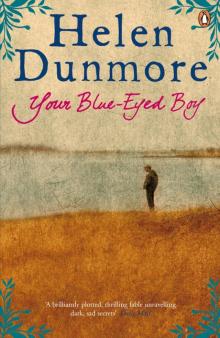 Your Blue Eyed Boy
Your Blue Eyed Boy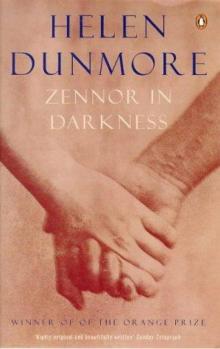 Zennor in Darkness
Zennor in Darkness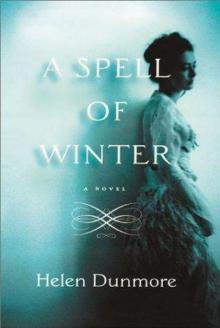 Spell of Winter
Spell of Winter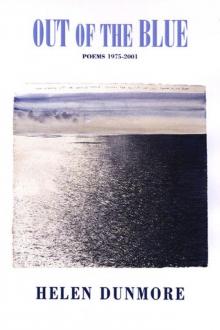 Out of the Blue: Poems 1975-2001
Out of the Blue: Poems 1975-2001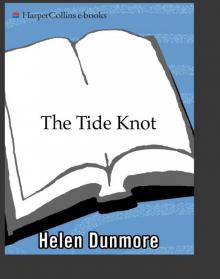 Tide Knot
Tide Knot The Betrayal
The Betrayal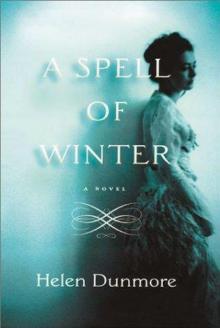 A Spell of Winter
A Spell of Winter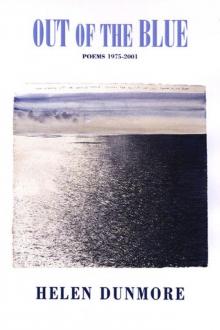 Out of the Blue
Out of the Blue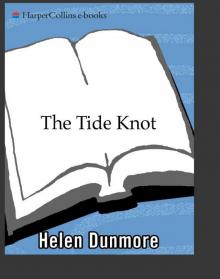 The Tide Knot
The Tide Knot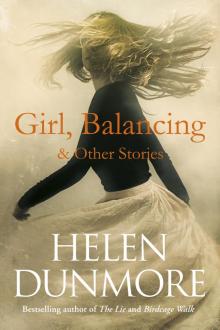 Girl, Balancing & Other Stories
Girl, Balancing & Other Stories Betrayal
Betrayal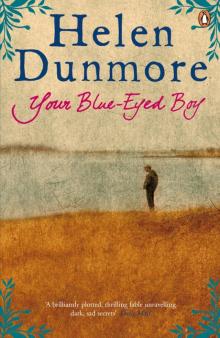 Your Blue-Eyed Boy
Your Blue-Eyed Boy